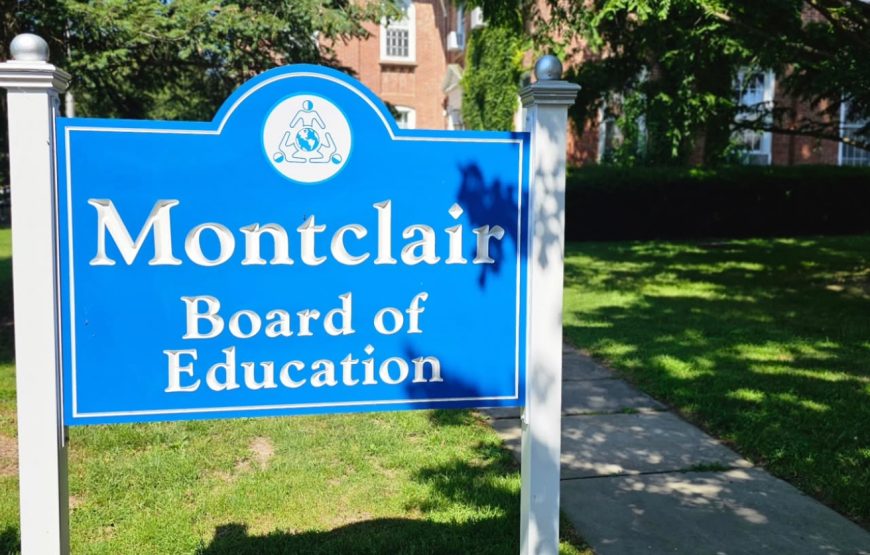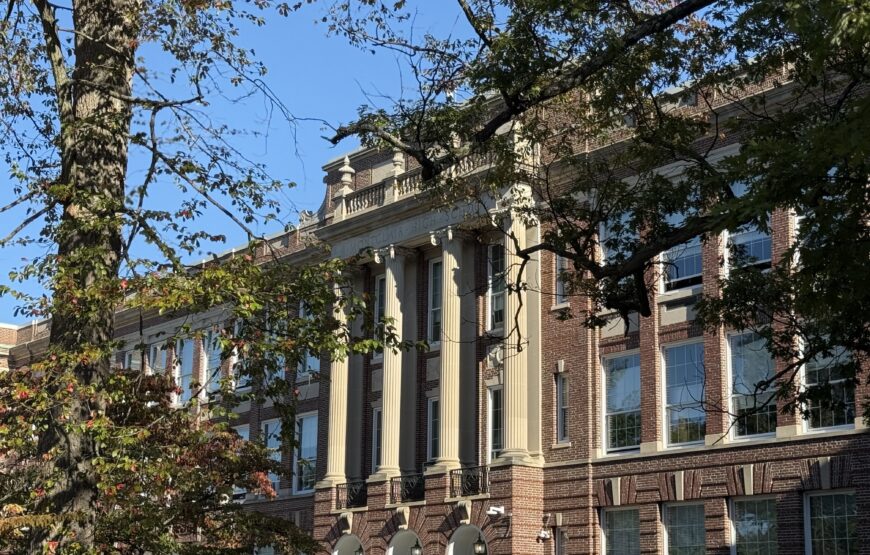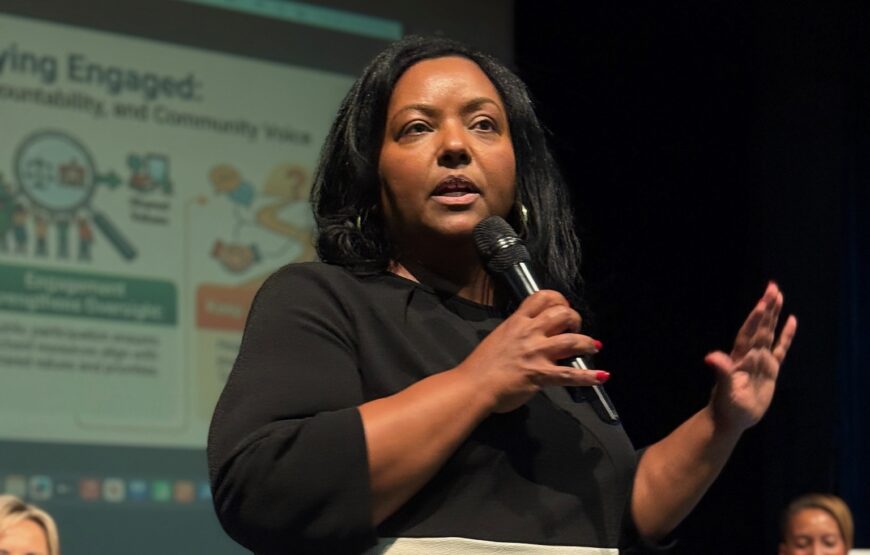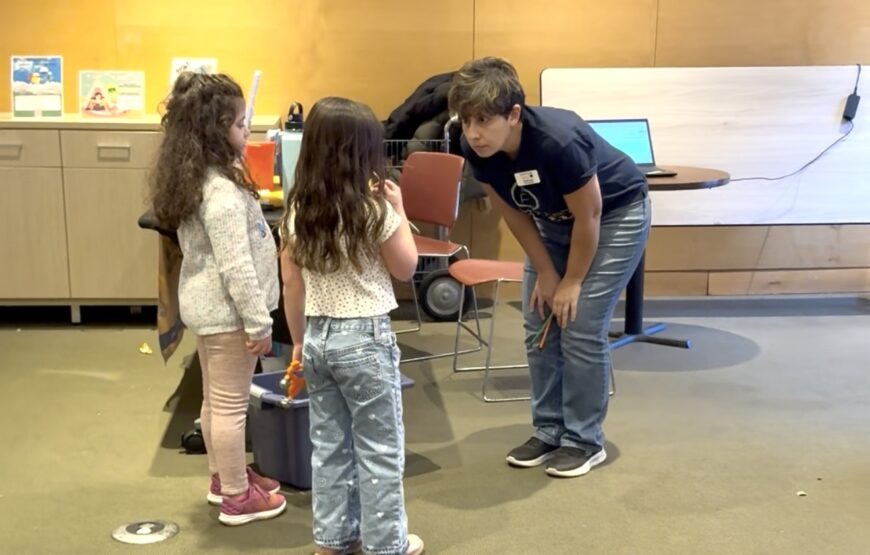This fall, Montclair voters will head to the polls to decide on three open seats on the Montclair Board of Education. The Board plays a central role in shaping the future of our public schools, from managing budgets to setting policies that affect every student and family in the district.
To help the community better understand the priorities and visions of each candidate, The Montclair Pod invited all five candidates to answer the same set of questions. Below are the responses from Milton Horowitz, Sean Long and Kerri McMahon. You can click here to read about this year’s two more candidates.
Responses have been lightly edited for punctuation and concision.

Milton Horowitz
What experiences, skills, and perspectives make you uniquely qualified to serve on Montclair’s Board of Education?
I am a retired educator and teacher of mathematics. I am a veteran who served in the U.S. Air Force as a Radio Intercept Analyst in military intelligence, gaining analytical, leadership, and problem-solving skills. I worked as a systems programmer at TeleSciences in Fairfield, NJ.
I have had a diverse career spanning higher and secondary education. I was a professor at Ramapo College, where I created the Mathematics Learning Center Curriculum for the EOF program, and I taught at Edward Williams College in the Adult Saturday Program. I was also a dedicated high school mathematics teacher.
I have lived with my wife and family in Montclair since 1969. My son had learning disabilities, and as a result I became a staunch supporter of special education and secured money and resources for those programs. My wife had a 20-year career working in Montclair in the Finance Department and the Clerk’s Office, where she became the Deputy Clerk. We both have a deep commitment to Montclair and have been active in many ways in the Montclair community and school system.
Montclair Public Schools are facing significant budget challenges, including debt and concerns about financial management. As a Board member, how would you work with the superintendent and the community to promote fiscal responsibility, transparency, and clear priorities in spending?
As a Board member, with respect to the Superintendent, I would like to be clear about the separate responsibilities of Board members versus those of the Superintendent—policy is set by the Board, whereas implementation of policy is the responsibility of the Superintendent.
Regarding the community, I would attempt to be as open as possible within legal requirements. The public has the right to know as much as possible about the policies and responsibilities of the Board.
Fiscal management is something I would need to examine more closely. It is difficult to know what is happening when the Business Administrator is not giving the appropriate information to the Board. One suggestion I would like to make is that every vendor send two invoices: one to the Business Administrator and the other to the Board.
Montclair is known for its diversity, but achievement gaps persist across the district. What specific policies or initiatives would you support to ensure that all students—regardless of race, income, or learning ability—have equal opportunities to succeed?
This is a subjective question for me to answer. I would like to become more familiar with the data on achievement gaps. It seems to me that the “achievement gap” may be related to how resources are allocated across the school system, beginning with preschool.
As to the specific policies and initiatives in your question, it would be important for me to work with the other Board members to examine what appears to be working compared to what is not functioning. By making changes to a system in progress, one needs to determine the unintended consequences of each potential change recommended. This is something I learned, not only working with gathering intelligence but also as a computer programmer “debugger.” One also needs to examine the outliers in any data structure. The outliers sometimes tell you more than the data in the expected range.
As a teacher, I also learned that what I say to a class has unforeseen consequences for each of my students, depending on how they interpret the words I use.
For example: using the word delinquent versus late. Delinquent may mean late or criminal, as in juvenile delinquent. Late may mean tardy, late to school, late in paying bills—or that someone has died.
What frustrates you most about our schools?
I deplore the way subject material is taught, especially mathematics. Why do so many people say either they never could understand it or that it was their worst subject?
Every living creature, especially humans, is innately and intuitively an expert in geometry. How else could they navigate this world? We all use math every day—when we use money, drive our cars, cook, build, play sports and games, plan trips, or manage time.
What do you love most about our schools?
The dedication of the people who enter the field of education! It is truly a calling for most of us in the field of education. Unfortunately, many leave teaching to move up to more lucrative positions in management.
I believe there should be two parallel paths in the education system: one for management and the other for those who wish to remain as teachers. There is no reason an excellent teacher should not be paid as much as a principal.
The relationship between the Board, district leadership, and the community has been strained in recent years. How would you recommend strengthening trust and collaboration among families, teachers, administrators, and the Board of Education?
I believe these relationships do not have to be adversarial. After all, you love your children, I love my children—when do we begin to love our children?
Education is not cheap, but we should all realize that it is worth every penny spent on truly educating our children. The better educated one is, the better off our society and social interactions will be. Let us all work together to make it work for all..
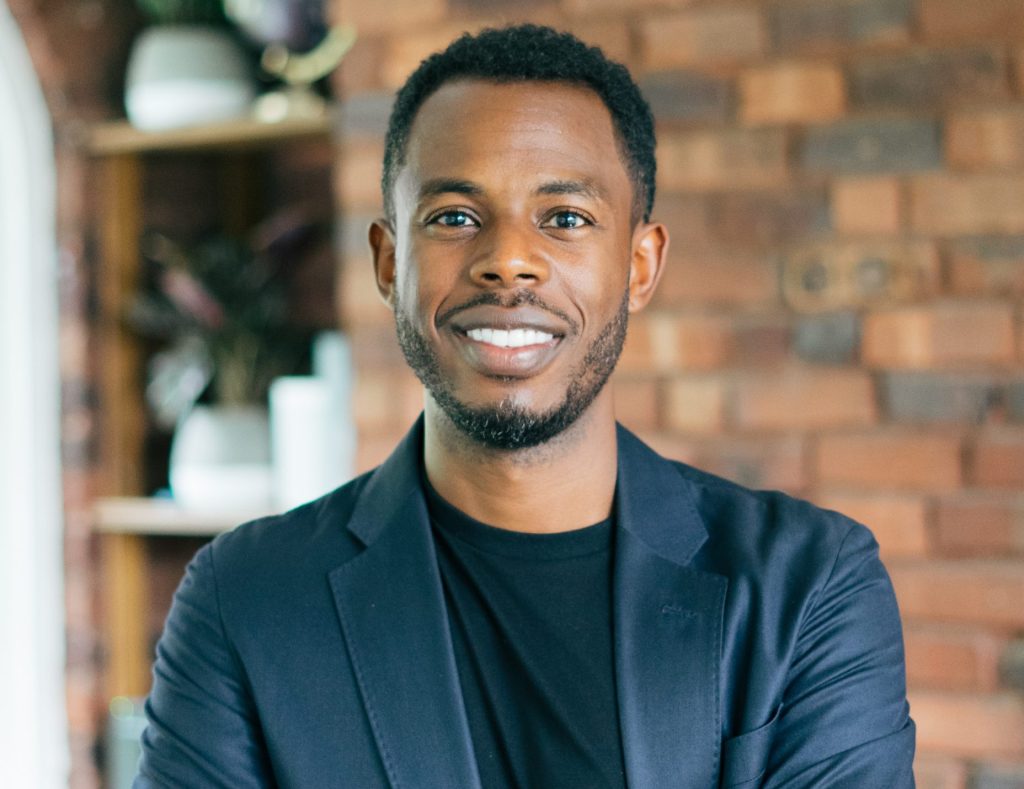
Sean Long
What experiences, skills, and perspectives make you uniquely qualified to serve on Montclair’s Board of Education?
I bring a blend of professional, board, and personal experience that equips me to contribute from day one. As a business executive, I’ve managed large budgets and complex organizations—skills that translate directly to helping Montclair navigate its current budget deficit with discipline and focus.
My time previously serving on the Board of Education gave me firsthand understanding of the district’s challenges and opportunities, while my service on the board of the Montclair YMCA has shown me what a high-functioning board looks like and how strong governance can drive impact.
Just as important, I bring the perspective of a parent who understands how board decisions ripple into classrooms and families. My background as an Eagle Scout and a proud graduate of Morehouse College reflects a lifelong commitment to service, leadership, and accountability. Together, these experiences shape my perspective and my drive to ensure Montclair schools are both financially sustainable and fully committed to academic excellence.
Montclair Public Schools are facing significant budget challenges, including debt and concerns about financial management. As a Board member, how would you work with the superintendent and the community to promote fiscal responsibility, transparency, and clear priorities in spending?
From my perspective, our new superintendent is moving in the right direction with increased communication and transparency. The recent town hall forums and even his appearance on this very podcast are encouraging steps toward rebuilding trust with the community. But these steps must continue, and they must be paired with a clear, disciplined financial plan.
We need two things at once: a concrete roadmap to eliminate the deficit and a long-term, repeatable budgeting process that ensures this never happens again. As a Board member, I will partner closely with the superintendent to put the right checks and balances in place—the kind that safeguard taxpayer dollars, protect classrooms from cuts, and keep academic excellence at the center of every budget decision.
That also means making the budget process more accessible to our community. I will push for quarterly budget forums so families, staff, and taxpayers have a regular seat at the table and real clarity into how dollars are being spent. Fiscal responsibility isn’t optional; it’s urgent. Montclair’s students deserve both excellent schools today and a financially sustainable district for tomorrow.
Montclair is known for its diversity, but achievement gaps persist across the district. What specific policies or initiatives would you support to ensure that all students—regardless of race, income, or learning ability—have equal opportunities to succeed?
Montclair’s greatest strength is its diversity—across race, socioeconomic background, language, and learning ability. But with that strength comes a responsibility: to ensure every student has a real opportunity for high academic achievement. That’s why I’m running.
I’m encouraged by the progress on universal pre-K, but the demand exceeds what we can currently support. Expanding access will be critical, because early education lays the foundation for closing gaps before they widen. At the same time, we cannot neglect our high school students, who need to graduate prepared not just for college, but for life. That means focused math and science support and stronger mental health services, because academic success and well-being go hand in hand.
It also means expanding Career and Technical Education, so students have viable pathways to pursue their passions and contribute meaningfully to society whether or not they choose a traditional four-year college.
As a Board member, my priority will be to champion policies that keep academic achievement at the center of decision-making for every student, not a select group. While Montclair adopts policies at the state level, I believe we must go further to tailor them to our district’s unique needs. That’s how we build a system where diversity is not just celebrated, but supported with real opportunity for success.
What frustrates you most about our schools?
What frustrates me most is that Montclair is a great town, but too often in recent years people say, “It’s a great town, but the schools have a few issues.” That shouldn’t be the case. Our schools should be a point of pride that matches the strength of our community.
I’m an optimist, and I believe in what’s possible here. We’ve been fortunate to have phenomenal teachers and amazing kids who have carried us forward, but we can’t keep relying on that alone. We need to do better as a system. Yes, we need a balanced budget and improved facilities, but more than anything, I want to see higher academic outcomes for all of our students, not just some. Montclair should be known as a place where every student thrives and achieves at the highest level.
What do you love most about our schools?
What I love most about our schools is the people. It’s the students, the teachers, and the broader community they bring together. The schools, along with the YMCA, touch more families and lives in Montclair than any other institutions. And when they are strong, the whole town is stronger.
Our schools are where magic happens. They are where book buddies form friendships across grades, where my son fell in love with math, where my daughter writes moving poetry, where teachers inspire students to discover new passions, where our children feel safe, and where neighbors come together for moments like the MLK Day of Service. For the most part, our schools bring out the best in people. That spirit of connection, creativity, and care is what makes me proud to be a Montclair parent and what motivates me to help make our schools even stronger.
The relationship between the Board, district leadership, and the community has been strained in recent years. How would you recommend strengthening trust and collaboration among families, teachers, administrators, and the Board of Education?
There’s no denying the relationship between the Board, district leadership, and the community has been strained in recent years. Rebuilding that trust starts with people you can count on and actions you can believe in. Earlier this year, I wrote an op-ed about the importance of shared goals, because when we agree on what we’re working toward, we can find common ground even when we disagree on how to get there.
We need urgency, and we need clear, consistent action. That means holding quarterly budget forums so the community has real input and clarity on finances. It means adopting stronger communication practices so families and staff hear directly from leadership and aren’t left to piece things together. And it means making transparency and accountability the norm, not the exception.
For me, the guiding values are integrity, consistency, and transparency. Those are what build trust over time. If we stay rooted in those values, we can keep our focus on what matters most: student achievement.
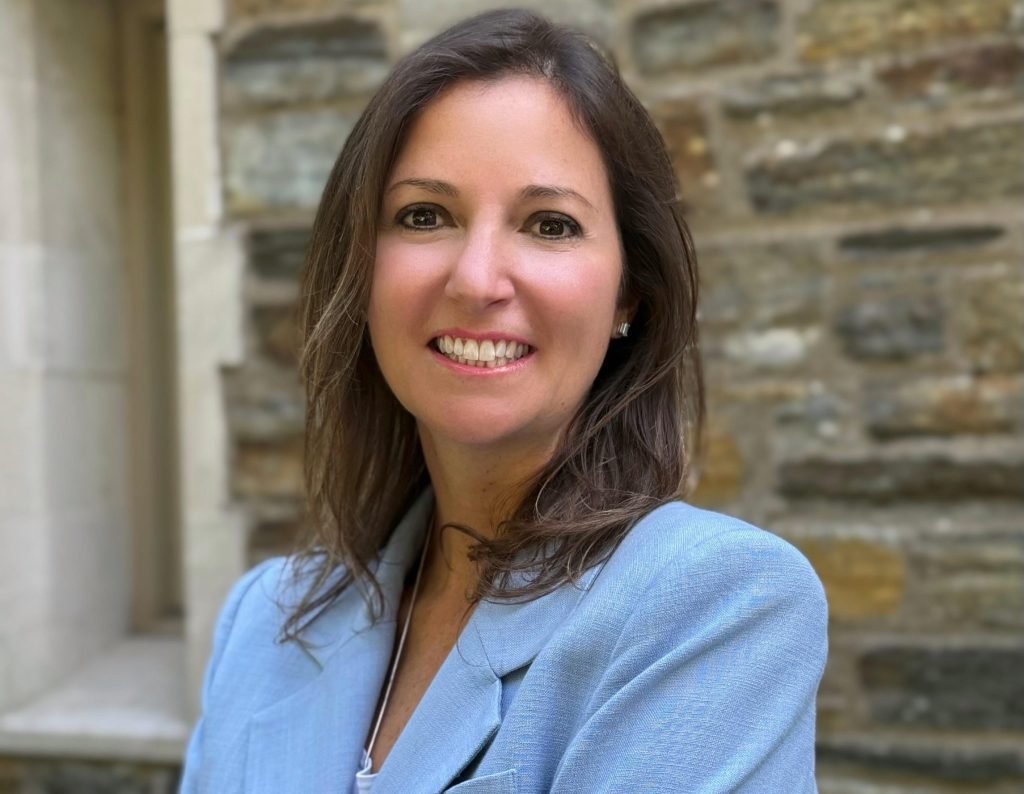
Kerri McMahon
What experiences, skills, and perspectives make you uniquely qualified to serve on Montclair’s Board of Education?
My wife and I have lived in Montclair for over a decade. Being a parent of three children in the district provides me with valuable insight into the inner workings of our schools and the challenges families face. I firmly believe in the public school system and that every child should be afforded the opportunity to reach their full potential.
My professional background is in Regulatory Affairs in the pharmaceutical industry. Regulatory Affairs partners with nearly every department in the company to effectively communicate with the FDA and follow laws, regulations, and guidances. While compliance is a key element to success, partnership and relationships are what make these negotiations effective. I was able to build and develop relationships that don’t just make it easier to work together, but also enable a high-performing team to achieve results.
I also lean into serving the community. I served on the board of a local nonprofit called Impact100 Essex and on the board of my church (St. James Episcopal Church). I am an active PTA member, where I served as PTA President for a two-year term, and I have co-chaired several committees, including co-chairing the SATp Committee for the past three years. One of the most notable achievements on the SATp Committee was applying for and securing a national grant to host a STEM Festival. This work allowed me to collaborate with teachers and administrators to find the most effective ways to benefit the school and the students.
If elected to the school board, I will bring proven leadership and a willingness to collaborate that is rooted in my professional background and years of service to the schools and community.
Montclair Public Schools are facing significant budget challenges, including debt and concerns about financial management. As a Board member, how would you work with the superintendent and the community to promote fiscal responsibility, transparency, and clear priorities in spending?
A surprise $18M budget deficit is unacceptable. Full stop.
While the BOE should collaborate and set the Superintendent up for success, it is also their job to do so with significant oversight. Every decision needs careful review, and there must be responsible planning, clear goals, evaluations, and community engagement.
New measures and guardrails will need to be put in place to ensure this never happens again. Fiscal Policies and Procedures (FPPs) must be developed where the BOE’s Finance Committee has access to the most up-to-date financial reports. This should include detailed financial statements every month, board training in financial oversight, engaging with auditors on various tactics (such as off-cycle audits of controls), and revamping FPPs to ensure compliance. Our financial controls were either not strong enough or were not followed, and we need to examine all of those aspects to design and implement Fiscal Policies and Procedures that work. The BOE is responsible for ensuring that happens. Oversight must be hands-on, particularly now as we work to move beyond this current budget crisis.
The community feels betrayed and vulnerable to an even larger budget deficit than the currently identified $18M. Repairing this relationship with the community will require significant transparency as to what is the plan to move forward, ensure this doesn’t happen again, and get accountability for it happening in the first place. As of the time of this response, no plan has been proposed to even address the budget deficit.
Bottom line: the status quo is not working, and we need to try new ideas. We should consider best practices and solutions that work in other districts. For instance, other NJ towns have created an Ad-Hoc Citizen Advisory Committee where residents with specific expertise can lend their talents without the cost to the district. While this approach should not be relied upon for long-term assistance, it can be extremely helpful with acute, specific challenges that the district faces. For instance, I’ve heard a retired federal agent offer to conduct a forensic audit on our district budget, and a communications specialist offered to prepare a one-page summary or a slide deck with a clear update on the Bond Referendum. The collective wisdom of Montclair residents is incredible and could be better utilized.
I would also encourage communication with the public via Town Halls and a weekly or monthly newsletter on this particular topic until it is in our rearview mirror.
Montclair is known for its diversity, but achievement gaps persist across the district. What specific policies or initiatives would you support to ensure that all students—regardless of race, income, or learning ability—have equal opportunities to succeed?
I fully agree that Montclair is known for and is celebrated for its diversity. In fact, that is the reason why many of us move here—to be among other like-minded individuals. While diversity is a core value, so is equity. Equity goes beyond just a slogan; it should be embedded in each decision we make to ensure every student is considered. I believe in the public school system and that every student should be afforded the opportunity to reach their full potential.
The opportunity gap in Montclair continues to persist. We must implement strategies and policies to address and narrow these gaps across the district. A decade ago, the district conducted a comprehensive 2015 Achievement Gap Audit that analyzed four years of data and quantified that the gap exists at the very first point of standardized testing (3rd grade). And it only widens as students grow into middle school and high school. State test scores (e.g., NJ ASK) do not tell the entire story—other indicators show alarming differences between student groups in GPAs, course selection/enrollment in higher-level courses, and suspensions.
Furthermore, the distribution of students enrolled in higher-level classes (AP and honors) does not reflect the make-up of the student body. For instance, while white students comprise slightly less than half of the Montclair High School student body, the higher-level classes are filled by 70% white students, while 70% of the lower-level classes are filled by Black students.
Since that audit in 2015, the district has made an effort to find better strategies to try to narrow the gap. Some of those strategies have been successful (access to affordable pre-K for Montclair students, simplifying the curriculum flowchart, and offering multiple languages in communications), but we also need to learn from other strategies that have not made an impact.
Outlined below are some of the specific policies/actions I support:
- Informed Academic Planning: Preparedness of students before they enter the 9th grade is essential to ensure they are positioned to take higher-level courses at MHS. Clear academic roadmaps and intentional academic planning involving caregivers can help all students achieve their fullest potential. Hosting a District Math Night can be illuminating for students and families navigating their middle and high school course selections.
- Address Socioeconomic Barriers: While data on the number of students benefiting from paid tutors remains anecdotal, it is important to highlight the inordinate number of reports of tutoring happening for students enrolled in challenging courses. If certain higher-level high school classes require outside tutoring, then that is a socioeconomic barrier that should be addressed.
- Equip Teachers with Tools for Effective Instruction: The GoTeach Audit of Montclair’s special education program recommended the creation of “a systemic PK–5 approach to language arts in general education and special education settings that include best practice interventions, revised curriculum, and fidelity of implementation of programs and resources for literacy.” Teachers need to be equipped with the tools to support the students.
- Community Resources: Tapping into community resources such as the MFEE programs that provide tutoring or translation services.
- Elementary School: Even as young as elementary school, we should re-evaluate the placement algorithm to ensure the make-up of our individual schools better reflects the Montclair population. The magnet system with courtesy busing for those living more than one mile from the school is a pivotal factor in ensuring the diversity of our schools.
- Middle School: Critical involvement of community partners who provide enrichment, academic tutoring, and prevent summer learning loss is essential.
- High School: In order to increase enrollment of underrepresented students in High Honors and AP classes, we could use the College Board PSAT report recommendations and also require a timely meeting with a staff member and caregiver of any underrepresented student with an “A” or “B.”
While the 2015 analysis provided clear steps for action, an update on data and effectiveness of some of these measures would be helpful.
What frustrates you most about our schools?
The lack of frequent and transparent communication.
To date, other than the Town Hall on July 30th, there has been limited factual information presented about the budget. Most importantly, there has been no communication to the community about how the deficit will directly impact the students. This has left the community unsettled and forced to speculate via rumors and incomplete information. For instance, students were in tears this week over the unclear status and funding of six Buzz Aldrin Middle School clubs. We must do better.
What do you love most about our schools?
One of the things I love the most about our schools is the number of excellent teachers in the district who inspire the students. We are fortunate to have so many teachers who so obviously love what they do that the students can’t help but feel their passion and excitement. These are the teachers who can make difficult units or uninteresting topics feel like the most riveting thing in the world. They understand their students and are willing to go the extra mile to inspire them to achieve more and try harder.
I know this because I have seen it with my own children’s teachers, many of whom have been recognized as the NJ Governor’s Educator of the Year or the Judy Weston Award for Inspired Teaching. These special teachers have the ability to change the trajectory of their students’ lives.
As an invaluable asset to the community, they should be an equal stakeholder in the district and should feel supported. This can involve investing in teachers with professional development along with providing leadership opportunities to mentor teachers earlier in their careers. Teachers are the backbone of student success.
The relationship between the Board, district leadership, and the community has been strained in recent years. How would you recommend strengthening trust and collaboration among families, teachers, administrators, and the Board of Education?
Over time, trust has been eroded largely due to the lack of transparency. Decisions seemed to be made without input from the community, or when community input was requested, the final decision would be at odds with the majority of responses. This scenario occurred earlier this year with the school holiday calendar survey that was disseminated, where the majority of the BOE and the superintendent at the time (Mr. Cooper) voted against the input of 77% of respondents. Stakeholders should not feel sidelined or that their input does not matter.
To strengthen trust and collaboration among the various stakeholders will require finding common ground. First and foremost, we need to remember that we share one goal—providing every student with the opportunity to reach their full potential. The focus needs to remain on the students.
Treating each other with respect can be telegraphed by tone and body language, but also by more tangible things like responding to inquiries in a timely fashion or providing information in advance of meetings to allow time for review. Some small changes in the way that the Board and district leadership interact with each other and the community can go a long way. And of course, the most effective way to find a solution to a problem is with respectful, clear communication.
Given the new district leadership (superintendent and business administrator who started in July), I am hopeful that the new tone has already been established and will continue in a respectful, productive manner.
